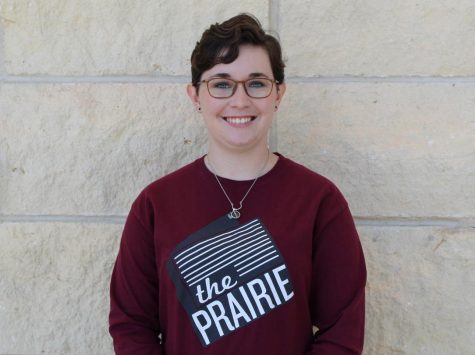Student Press Freedom Appreciation
January 30, 2019
Everyone is aware of others wanting to express their right to free speech in protests, on social media and in the press however, not everyone might know what that entails.
The freedom of speech is often used by those who wish to voice their opinion to those around them whether they agree or disagree. Many do this stating that those around them cannot do anything about stopping the speaker because of their First Amendment rights. This is simply not how our constitution works.
The First Amendment protects the people from those funded or employed by the government from stopping citizens voicing their opinions, not fellow citizens. Now, if the opinion incites imminent lawless action, violates a person’s right to legal privacy, is a clear and immediate threat to national security or is what defines as a “true threat”, then the government can step in and take action.
Those who support student press freedom want to increase awareness of freedom of the press at the high school and collegiate level. It is important that attainment of the truth, one of the values of free speech, is practiced by high school and college news organizations and can be practiced in the future. In student press, one can argue we have two layers of protection. One protection from a government funded entity stopping free speech, such as a public university. The other protection is from government action stopping reporting by the press. On the other hand, these two layers of protection can also mean students in media have twice the amount of risk.
The Prairie has a strong history of fighting for First Amendment rights. Through the publishing of detailed and powerful editorials to creating an underground newspaper to get out from under the thumb of an oppressive university president, The Prairie staff, past and present, are adamant about maintaining and exercising freedom of the press.
Dr. Gary Byrd has been faculty member of WTAMU since the 1980s when the university president at that time, was supposedly censoring and only approving stories he wanted in the paper. In retaliation of this alleged violation of the newspaper’s rights, Dr. Byrd, a professor at WTAMU at the time, created a newspaper outside of the university president’s control. In this newspaper, Byrd and other journalists were able to publish and distribute the stories they had the right to publish.
Some may argue public university news organizations take for granted the freedoms we have compared to other news organizations. A lot of student-run news organizations have the equipment they use provided to them by the university whilst professional organizations had to find and purchase their own equipment. Student press outlets are given the resources they use and do not experience the pressures those in the professional industry such as having enough money to pay for a living.
Because of this, university news organizations may have their credibility called into question more often than professional news organizations. So it is important that student-run news organizations show appreciation to their universities that provided the equipment and programs that are necessary in order to operate. While it is important we use our rights and express the freedoms we have as student press organizations, we need to remember and show our appreciation to the universities that support us. However, that does not mean caving to the whims and censorship of those running our public universities, as shown by Dr. Byrd in the 1918s. Truth and the distribution of truth is an important characteristic of journalism and should be celebrated by all student journalists through honest reporting.
The Prairie is a public forum for student public expression. Student Press Freedom Day is on Wed Jan. 30. Join the conversation on social media using #StudentPressFreedom.



